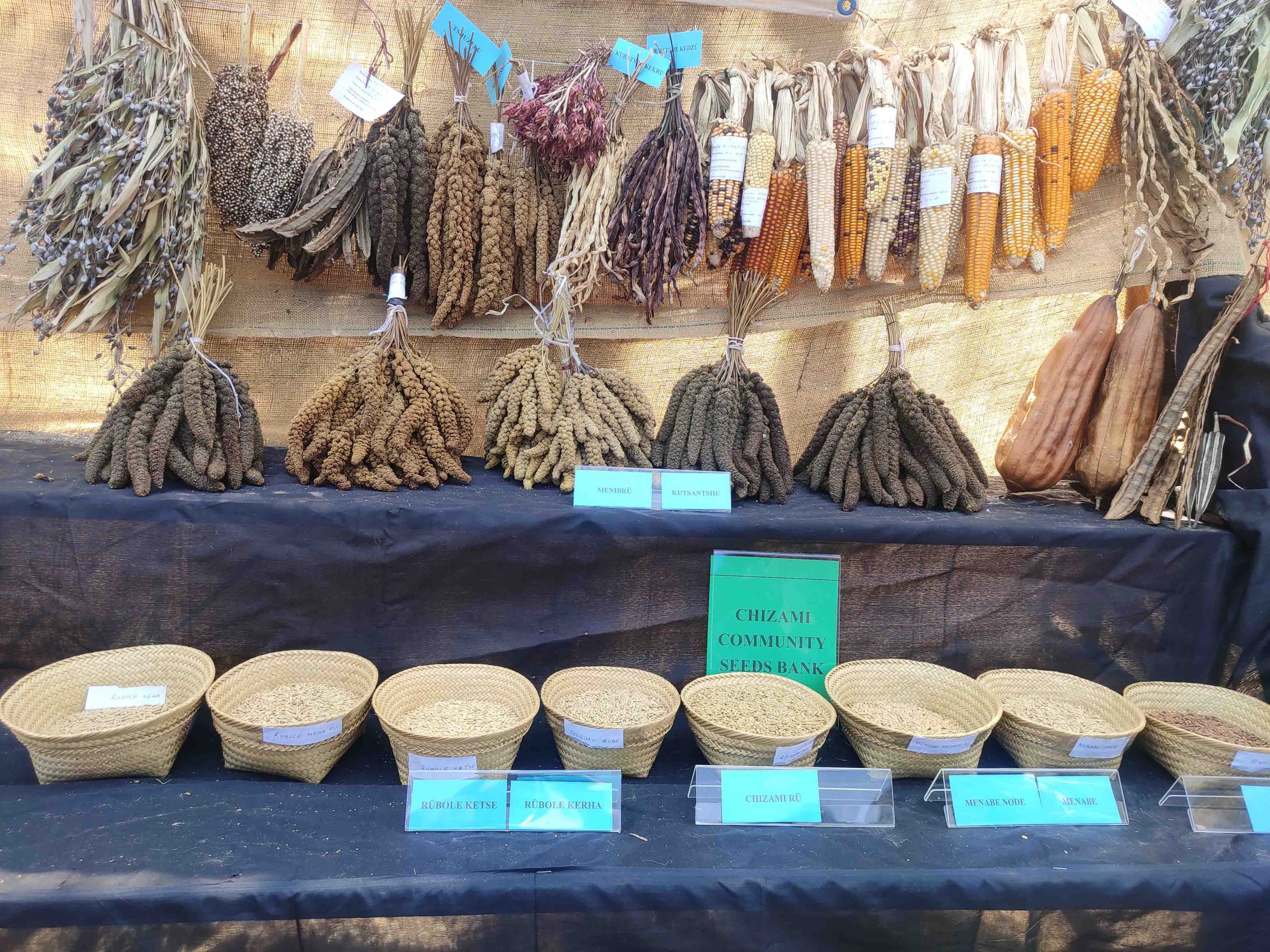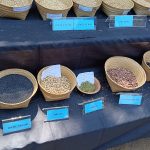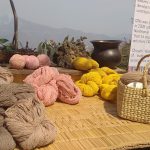The dusty winds of February 2023 not only brought about spring to Kohima but also heralded the start of a new project, Earthkeepers, at The Highland Institute Kohima (THI). This environmental humanities project is funded by the International Development Research Centre (IDRC), Canada. The aim is to investigate indigenous ecological knowledge and farmers’ experience of climate change on the Nagaland/Myanmar border.
We have a local coordinator, Catriona Child, and three Earthkeepers/Canada – IDRC Myanmar Fellows on the team. Kevide Lcho comes from the Angami tribe of Nagaland; he has a Master’s degree in Agriculture Extension Education and Communication. Tumuzo Katiry belongs to the Pochury tribe and has completed his Master of Science in Anthropology from Kohima Science College. Saktum Wonti also recently obtained her Master’s degree in Anthropology from Sikkim Central University, and she is from the Khiamniungan tribe.
The Earthkeepers project combines research with education and capacity building, so the aim is to expose us (the Fellows) to as many relevant educational experiences as possible. As part of this project, we visited the Biodiversity Festival in Chizami village, Phek District, Nagaland, on March 7. We took a local taxi from Kohima early in the morning. As we bounced over the bumpy roads, we thought how nice it would be if we had some music, but little were we prepared for the treat the mountains had for us. The road unfolded to a long stretch of colourful trees; the rhododendrons were in full bloom, and the forest was dotted with white-purple ‘orchid-trees’ (Bauhinia sp., not actually orchids). One of my colleagues reminisced about going to the forest to collect orchid-tree flowers, a local delicacy.
Our role was to represent the Institute and network with visitors and organisers since none of the senior THI staff could attend the event. Finally, after a three-hour drive, we arrived at the quiet village on a hilltop. A melodic chorus of Pochury women demonstrating the spinning of cotton thread welcomed us.
The Biodiversity Festival is an annual event organised by the North East Network (NEN). NEN is a women’s rights organisation from North-East India working with and for women of all ethnicities, sexual/gender identities, disabilities, and cultures. This year the theme for the Festival was ‘Millet for Community Resilience’.
Our tiredness from the journey wore off as we immersed ourselves in the Festival’s lively energy, visiting stalls and exhibitions. Myriad seeds and millets of varied hues were on display at the Festival. A plethora of stalls displayed organic vegetables and fruits, local foods, particularly millet cuisines, and beautiful traditional handicrafts. The yarns in soft neutral hues and yellows made from natural dyes, displayed by Chizami Weaves intrigued me. One would not often see these colours in a Naga women’s yarn basket, as red, black, white, blue, or green threads are the most common in traditional attires. It was encouraging to see them exploring their creativity and generating income for their families by marketing their products.
Central to the Festival was the ‘seed exchange ceremony’, where farmers from different regions exchanged seeds. Highlighting this practice was a great initiative because farmers act as seed banks, and while exchanging seeds, they also exchange the knowledge that ensures the continuity of indigenous food crops. In addition, the farmers at the Festival talked about the best months to sow crops and the measures taken to prevent pest and bird attacks on crops. A book titled ‘Seeds and Food Sovereignty-Eastern Himalayan Experiences’, published by North Eastern Social Research Centre (NESRC) was officially launched at the festival.
I learned for the first time that millet is called “Kunni Dhaan” in Nagamese. This cereal, once an essential part of the Naga’s diet, has lost its popularity with the introduction of junk foods and the farmers’ shift of focus to cash crops. However, it was heart-warming to see the revival of millet, which has a lot of health benefits and is said to be a climate-resilient crop.
In this busy, ever-changing world where people seem to have less time for others, festivals like this promote amity and friendship. They create a space where everyone can come together and learn from each other. Furthermore, they strengthen and pass on rapidly diminishing traditional practices. School education is insufficient to sustain our biodiversity. More than ever before, we need to reconnect and learn the indigenous practices that are closely tied to nature.
Seed Guardians Of The Hills
By Saktum Wonti
Images from the Biodiversity Festival, Chizami
Photos courtesy Earthkeepers team







